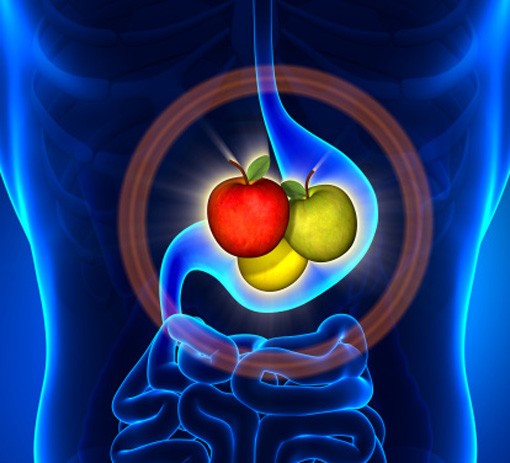Weight Loss & Digestion: More Than Counting Calories
I sometimes have patients who come to my office and boast about their healthy dietary habits but complain about their lack of weight loss success. Having been taught to ask the right questions, I always ask patients to clarify what a day of their diet looks like. Sometimes I am surprised by what people consider “healthy” and other times I am more than impressed by the knowledge some patients already have.

One of the reasons I got into weight loss and weight management care was because of my genuine interest in digestive health. I was curious to understand how the digestive system was linked to the other systems in the body, why its impairment could lead to a myriad of symptoms, both physical and psychological, and what factors could positively or negatively affect its functioning. I quickly learned that a healthy gut is an essential component of healthy weight. I’m thrilled to see more studies investigating this relationship and more articles being written by mainstream media sources! Below I’ve tried to give you a simplified explanation.
The Microbiome: Within the digestive tract are thousands of small bacteria called microbiota. They coexist amongst each other and work to help digest certain foods, produce some vitamins and maintain a strong barrier between the gut and the immune system (80% of the immune system lines the digestive tract). One third of the gut microbiota are common to most people while the remaining two thirds are unique to each individual (interesting, right??)

The digestive system cannot function properly without a well-balanced microbiome. The composition of the gut microbiota varies depending on many factors such as diet, stress and antibiotic use. A loss of balance, called dysbiosis, can lead to many symptoms including but not limited to: bowel disorders, allergies, inflammation, diabetes and …OBESITY.
Candida and Food Cravings: Candida (yeast) is a well-known microbiota that can overpopulate and lead to candidiasis. When this occurs, people often experience sugar and carbohydrate cravings, fatigue, brain fog and weight gain. In fact, symptoms of candidiasis can also manifest as constipation or diarrhea, bloating and indigestion, headaches or migraines and skin conditions such as eczema and psoriasis.

Food cravings can be subtle or severe but are always satisfied with sugary snacks and refined carbohydrates. Sugary snacks and refined carbohydrates affect insulin and blood sugar levels and increase fat storage within the body. These foods are often high calorie, lack nutrients and filled with additives, preservatives and sugars; they neglect to provide any benefit.
Many people admit that cutting sugar from their diet is extremely hard because the cravings can be so extreme. What many people don’t realize is that sugar feeds candida so sometimes, the cravings are actually the microbiota saying feed me! If you cut sugar out for one week, your cravings will start to diminish and eventually go away. If you truly have candidiasis you will want to take additional supplements to help kill the overpopulated candida and restore a healthy and balanced microbiome. Self-prescribing supplements may lead to ineffective results, symptom aggravation and loss of money. If you live in Toronto and think you may have a yeast overgrowth book a FREE CONSULTATION with me.
Food Sensitivities: Over the last five years, people have become aware that some foods may be really healthy but may not be right for them. We often hear about food allergies and associate them with symptoms of hives, rashes, diarrhea, vomiting or anaphylaxis. Food sensitivities manifest as more subtle symptoms, sometimes only occurring 3 days after eating an offending food. When the body develops food sensitivities it produces an immune response causing inflammation. Chronic inflammation due to daily consumption of reactive foods can lead to weight gain and difficulty losing weight. Eliminating the most common reactive foods or taking a comprehensive blood test to determine specific food sensitivities, can be the key to healthy and long lasting weight loss.

The most important take home is that healthy weight loss is more than just counting calories. The digestive system plays a fundamental role in our body weight and for many people, it’s not about how much food they are eating, it’s about what food they are eating. Foods that feed candida, create dysbiosis and impair the digestive systems microbiome cause weight gain, fluctuation and make it difficult to lose weight. To achieve true weight loss and optimize your overall health, always consider your gut!!





